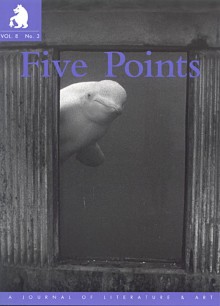Five Points, Vol. 8 No. 3
Fall 2004From Michael Longley, “I’m interested in poets who do things that I can’t do.”
Sample Content
Virginia Spencer Carr
from Paul Bowles: A Life
The Early Childhood of Paul Bowles
(1910-1918)
“At birth I was an exceptionally ugly infant. I think my ugliness caused the dislike which my father immediately formed for me.”
—Paul Bowles to Bruce Morrissette,
Jamaica, New York, January 14, 1930
Paul Bowles hated his father. There was never a time that he could remember not hating him. When Bowles was six, his grandmother Henrietta Winnewisser told him that his father had tried to kill him when he was an infant. Henriette could not abide her son-in-law and hoped that he would simply disappear before the child was irreparably injured. Bowles never doubted for a moment that his grandmother spoke the truth.
Claude Dietz Bowles, Paul Bowles’s father, was a dentist who spent far more time with his patients than he did with his family, whom he sometimes found asleep when he climbed the steep steps of the old brownstone at 317 Fulton Street in Jamaica, New York, where he lived with his bride of fourteen months and a son whose presence he resented. If Claude did not appear promptly at 6:00 p.m. for dinner—when he insisted that it be ready and on the table—his wife, Rena, ate alone, then left the dining room to breast-feed her infant in the nursery. On such nights Claude found his dinner in the oven, and he picked at it grudgingly as though he resented each bite. Claude saw his interloping son as the real culprit. A fresh-air enthusiast, he hated finding the infant swaddled in blankets in a stuffy nursery. One evening when his son was scarcely three weeks old, Claude stripped him naked and placed him in a wicker basket beneath the window, which he threw open to its full height. Had Henrietta not been awaked by her grandson’s persistent cries and discovered him lying under a dusting of snow, she was certain he would not have survived the night. To Claude she had overstayed her welcome, and he was impatient for her to leave. He even offered to hire a maid, temporarily, to help with the chores, but his wife would not hear of it and insisted that her mother could stay as long as she wished.
Paul Frederick Bowles was not a pretty sight upon his breach birth on December 30, 1910. An ugly gash creased the side of his head, and on both temples a doctor’s forceps had left deep imprints. His mother’s two sisters noticed that their nephew’s brow and crown were stretched grotesquely out of shape, but said nothing for fear of offending Rena herself. As a child, upon poring over early photographs, Bowles concluded that he resembled the pinheads at whom people gawked and snickered in the circus midway to which his mother’s brothers had taken him. He, too, had gawked at his baby pictures and demanded an explanation. Rena admitted that for a time she had concealed his misshapen head under flounced bonnets, but onlookers were quick to assume that something terrible had occurred in the birth process. “The scar over my eye today is a reminiscence of those natal difficulties,” said Bowles, whose father begrudged the precious time he had taken from his dental practice to accompany his wife to the hospital. Scarcely an hour after their son’s birth, two nuns marched ceremoniously to her bedside and wrenched the infant from her arms.

